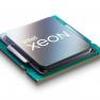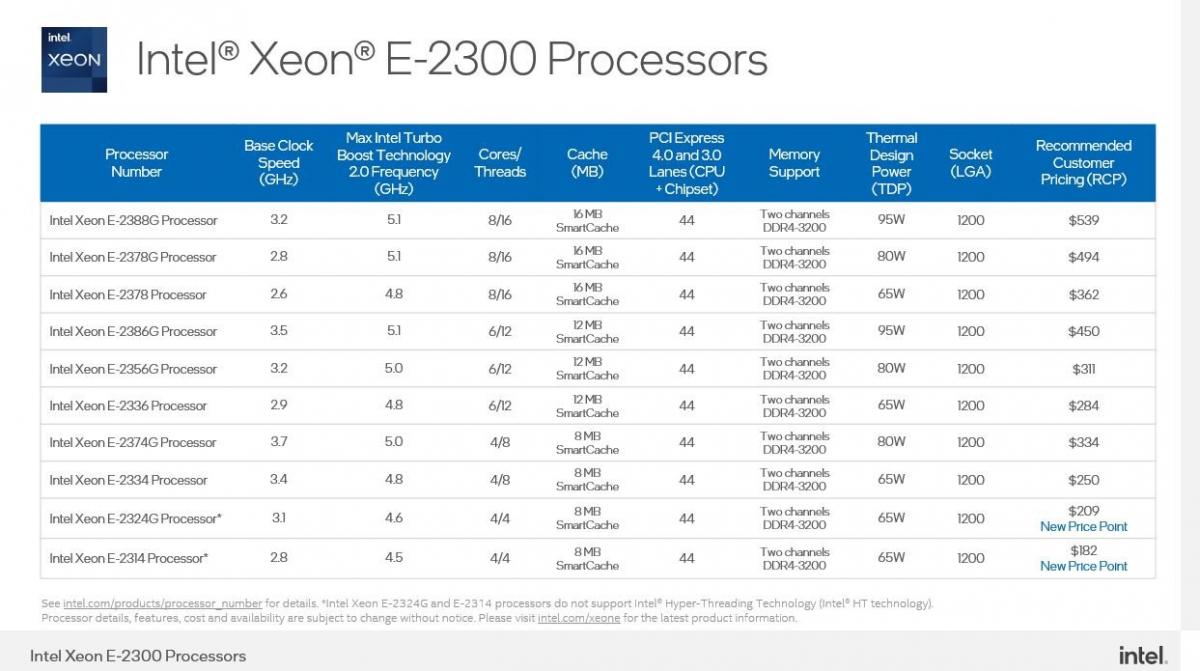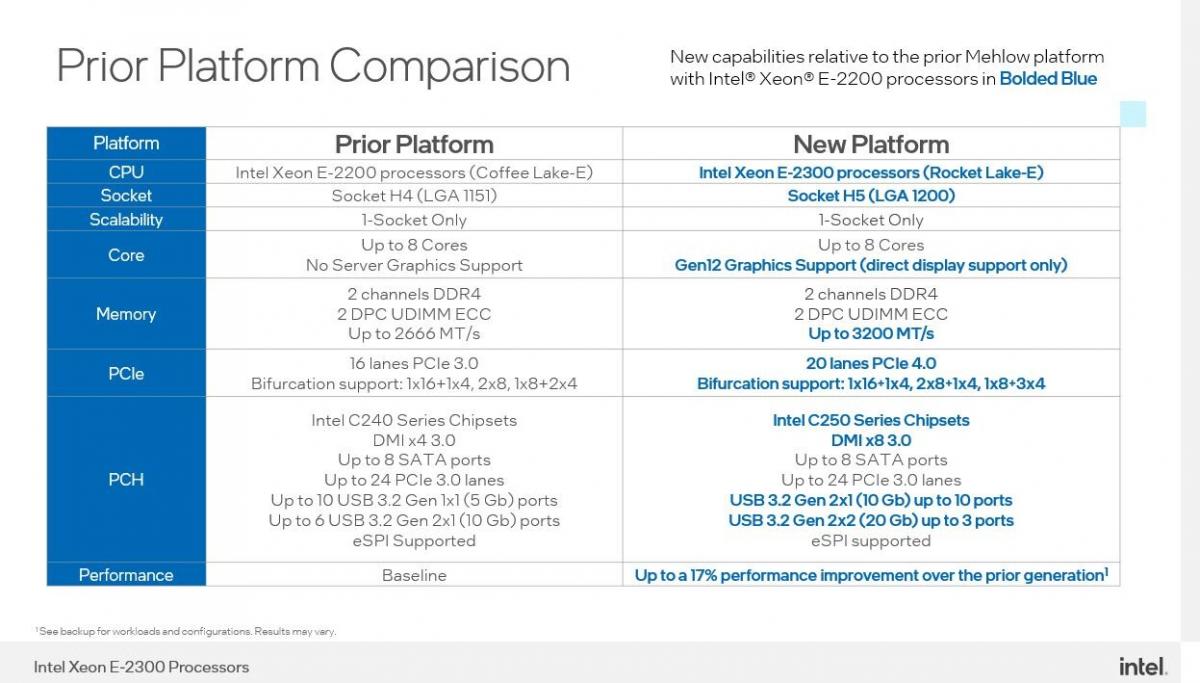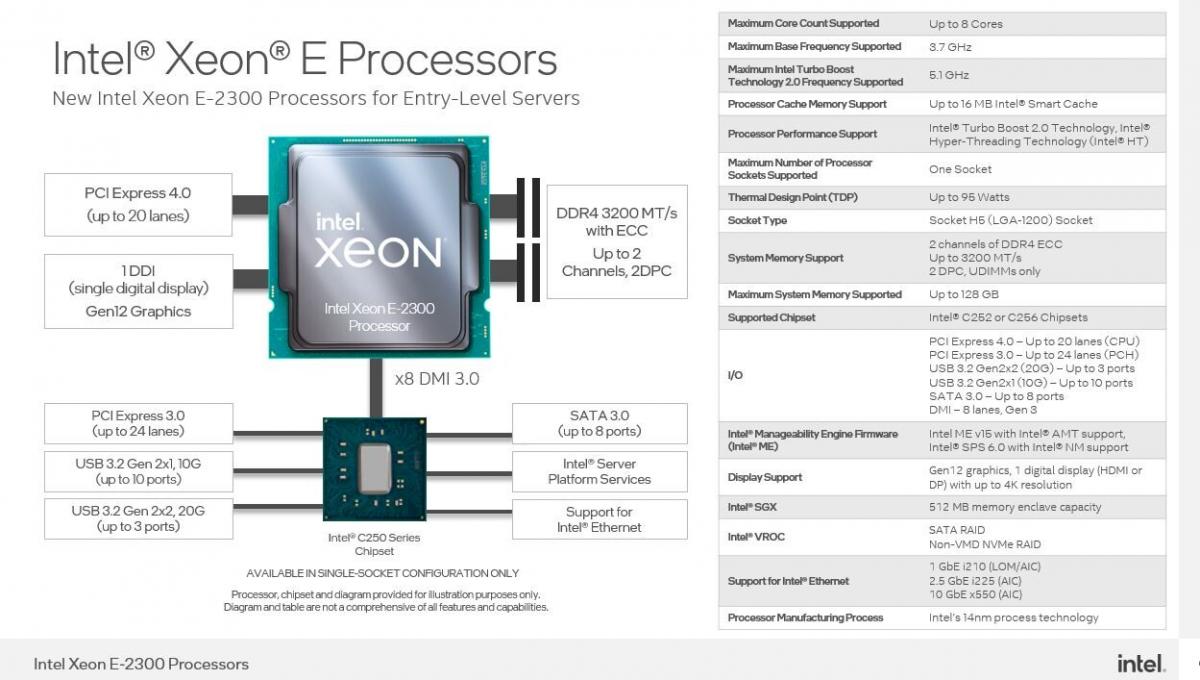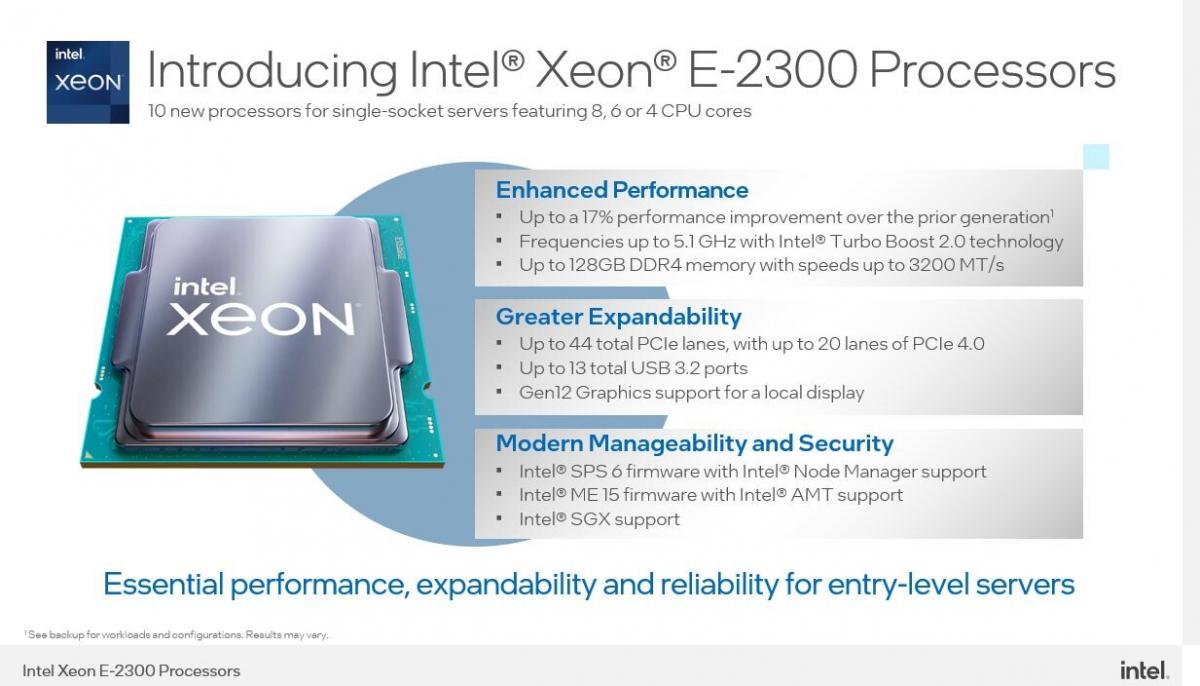With the introduction of the Xeon E-2300 series enterprise processors for entry-level servers, Intel has further demonstrated the capabilities of their 14 nm "Rocket Lake-E" manufacturing technology.
The "Xeon E-2300" series of processors for servers is based on the same Rocket Lake architecture as the Intel Core processors of the 11th generation. Processors that are suitable for small business entry servers that do not require the same level of performance as the Xeon scalable CPU family. However, the memory supports ECC, and the CPU cores have a maximum of 8 cores (16 threads) and 20 lanes of PCI-Express 4.0, which are similar to the 11th generation Intel Core processor. It has also been decreased to a maximum of 95W, which makes heat treatment a little less difficult in this case.
Next to ECC memory supported, as are vPro, SGX, and MPX graphics cards (memory encryption). There are no new instructions or features, only the same AVX-512 instructions and DLBoost AI acceleration that are found in 11th Gen Core processors. It is possible to have up to eight "Cypress Cove" CPU cores on the "Rocket Lake-E" silicon, with each core having 512 KB of dedicated L2 cache and 16 MB of shared L3 cache.
With two channels of DDR4 memory support, the processor can accommodate up to 128 GB of DDR4-3200 memory on a single memory bus. When compared to the Intel C250 series chipset, which creates 24 PCI-Express 3.0 lanes and can be divided in a variety of ways, the AMD APU generates 20 PCI-Express 4.0 lanes and can be divided in a variety of ways. The TDP of the chips in this series can reach up to 95 W.
